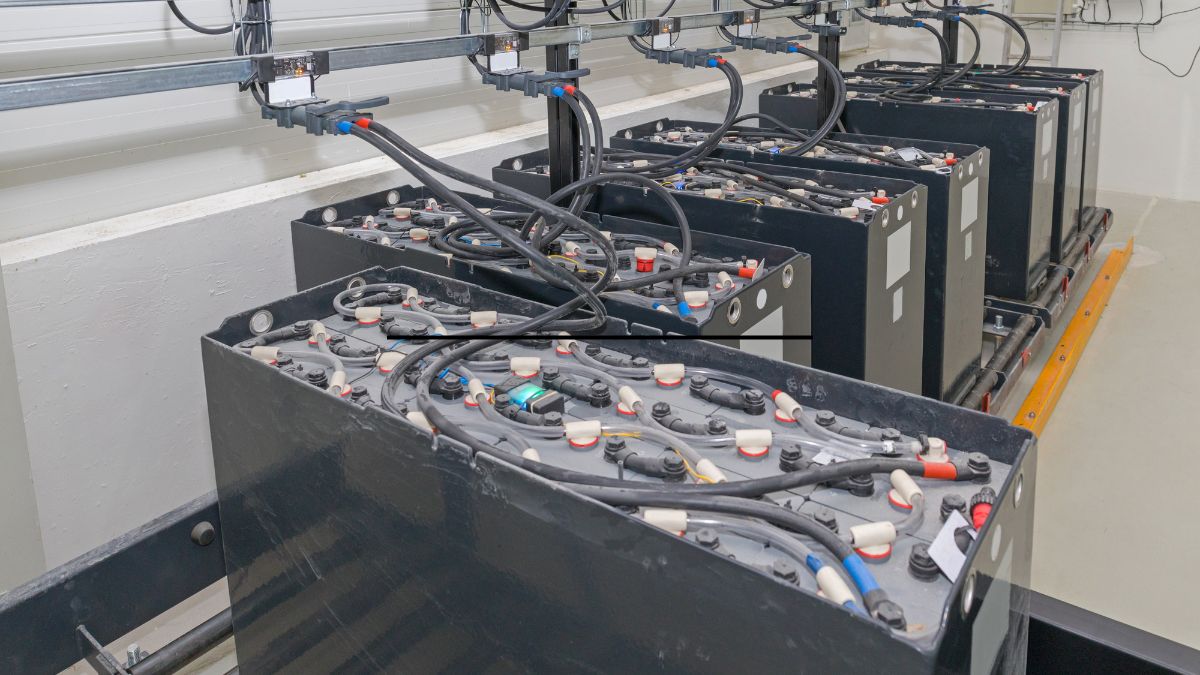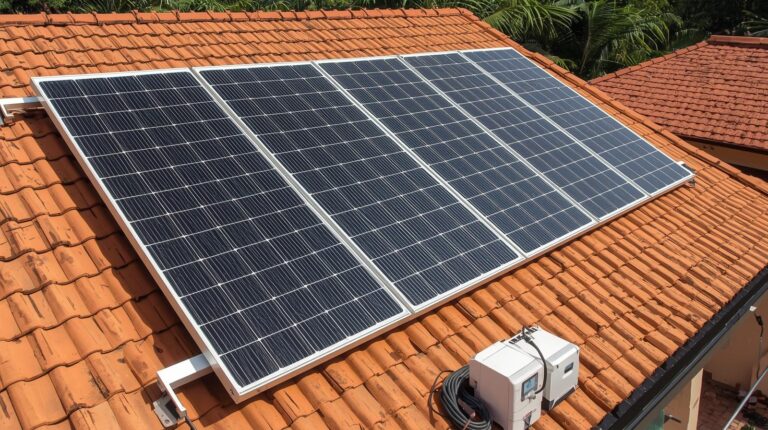The use of renewable energy sources, such as solar panels, has become increasingly popular in recent years as a means to reduce carbon emissions and provide sustainable energy solutions. However, when it comes to powering off-grid or solar panel systems, choosing the right battery is crucial.
Two popular options are lead-acid and lithium-ion batteries, each with their own advantages and disadvantages. Lead-acid batteries have been used for decades and are more affordable and durable than lithium-ion batteries. On the other hand, lithium-ion batteries are lightweight and efficient, making them a popular choice for portable and mobile applications.
In this article, we will explore the differences between lead-acid and lithium-ion batteries and help you determine which one is best suited for your needs. By understanding the factors to consider when choosing a battery for solar applications, you can make an informed decision and ensure that your system operates efficiently and effectively.
Key Takeaways
- Lead-acid batteries are cheaper and have longer lifespans, but require more space and ventilation.
- Lithium-ion batteries have greater energy density and efficiency, and better depth of discharge, but have a shorter lifespan and are more fragile.
- Capacity, cost, efficiency, depth of discharge, lifespan, weight, and space are important factors to consider when choosing between the two battery types.
- Choosing between the two battery types depends on individual needs and priorities.
Comparing Battery Types
When considering the best battery type for a solar panel or off-grid system, it is important to compare lead-acid and lithium-ion batteries in terms of their battery performance and environmental impact.
Lead-acid batteries are affordable, readily available, and powerful, but they are heavy and have low power density. They are also cheaper and have longer lifespans, but require more space and ventilation.
On the other hand, lithium-ion batteries have greater energy density and efficiency, better depth of discharge, and are more lightweight. However, they are expensive and require special circuitry.
Capacity, cost, efficiency, depth of discharge, lifespan, weight, and space are important factors to consider when choosing between the two battery types. Lithium-ion batteries may be better for limited space situations and for running batteries hard, while lead-acid batteries may be better for cost and ample space.
Additionally, lithium-ion batteries may potentially cost less per kWh of capacity over their lifespan due to added efficiency, but still typically end up costing more than lead-acid batteries.
Ultimately, the choice between the two battery types depends on individual needs and priorities.
Factors to Consider
Important factors to consider when deciding between the two types of batteries include battery capacity, cost analysis, efficiency, depth of discharge, lifespan, weight, and space.
Battery capacity is the amount of energy a battery can store and is measured in amp-hours (Ah). This is an important factor to consider when selecting a battery as it determines how much power can be stored and used.
Cost analysis is also important as it determines the overall cost of the battery system. The upfront cost of lithium-ion batteries is higher than lead-acid batteries, but they may be more cost-effective in the long run due to their higher energy density and efficiency.
Efficiency refers to the amount of energy that can be stored and retrieved from the battery. Lithium-ion batteries have higher efficiency than lead-acid batteries, which means they are able to store and retrieve more energy with less loss.
Depth of discharge refers to how much of the battery’s capacity can be used before it needs to be recharged. Lithium-ion batteries have a higher depth of discharge than lead-acid batteries, which means they can be used for longer periods of time before recharging.
Lifespan refers to the amount of time a battery can be used before it needs to be replaced. Lithium-ion batteries have a shorter lifespan than lead-acid batteries, but they may be more cost-effective in the long run due to their higher energy density and efficiency.
Weight and space are also important factors to consider, especially for off-grid applications where portability and space efficiency are critical.
Related Article: Discover 3 Best Batteries For An Off-Grid Energy System
Battery Maintenance and Efficiency
Efficient battery maintenance is crucial in ensuring the effectiveness and longevity of any battery system, regardless of the type of battery used.
For lead-acid batteries, regular maintenance is necessary to prevent sulfation, which occurs when the battery is not fully charged and leads to the formation of lead sulfate crystals on the battery plates. This can reduce the battery’s capacity and lifespan.
To prevent sulfation, it is important to keep the battery fully charged and to perform regular deep cycle maintenance, which involves discharging the battery to a certain level and then recharging it. Additionally, battery reconditioning can be used to restore the battery’s capacity and extend its lifespan.
For lithium-ion batteries, maintenance is less intensive, but still important. Lithium-ion batteries do not require deep cycle maintenance, but it is important to keep them charged and to avoid overcharging or discharging them too much.
Overcharging can cause the battery to overheat and potentially catch fire, while discharging too much can damage the battery’s cells and reduce its capacity. Additionally, lithium-ion batteries should be stored at a moderate temperature to prevent degradation.
Overall, efficient battery maintenance is essential for maximizing the lifespan and effectiveness of any battery system, and regular deep cycle maintenance and reconditioning can be particularly beneficial for lead-acid batteries.
Conclusion
In conclusion, the choice between lead-acid and lithium-ion batteries for solar panels ultimately depends on your specific needs and preferences. While lead-acid batteries are a tried-and-true option that can provide reliable power at an affordable price, they require more maintenance and have a shorter lifespan than lithium-ion batteries.
On the other hand, lithium-ion batteries are more efficient and lightweight, but come at a higher cost. It is important to consider factors such as capacity, lifespan, and cost when choosing a battery for your solar panel system. Additionally, it is crucial to properly maintain your battery to ensure optimal performance and longevity.
Ultimately, the decision between lead-acid and lithium-ion batteries is a personal one that requires careful consideration of all the relevant factors. Whether you opt for the affordability and durability of lead-acid batteries or the efficiency and lightweight design of lithium-ion batteries, the important thing is to find a battery that meets your needs and fits within your budget.
By carefully weighing your options and considering all the relevant factors, you can make an informed decision that will help you get the most out of your solar panel system for years to come.




